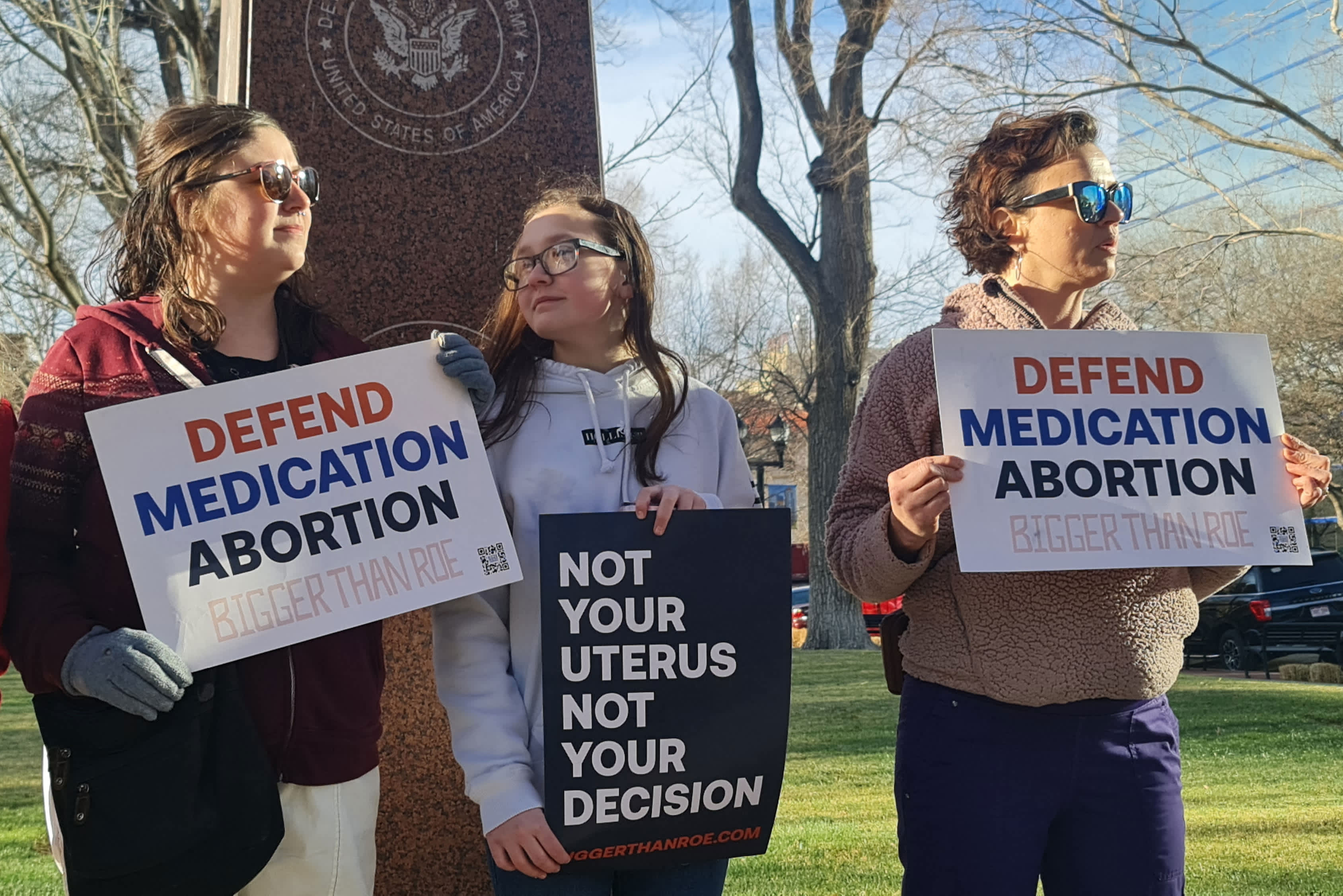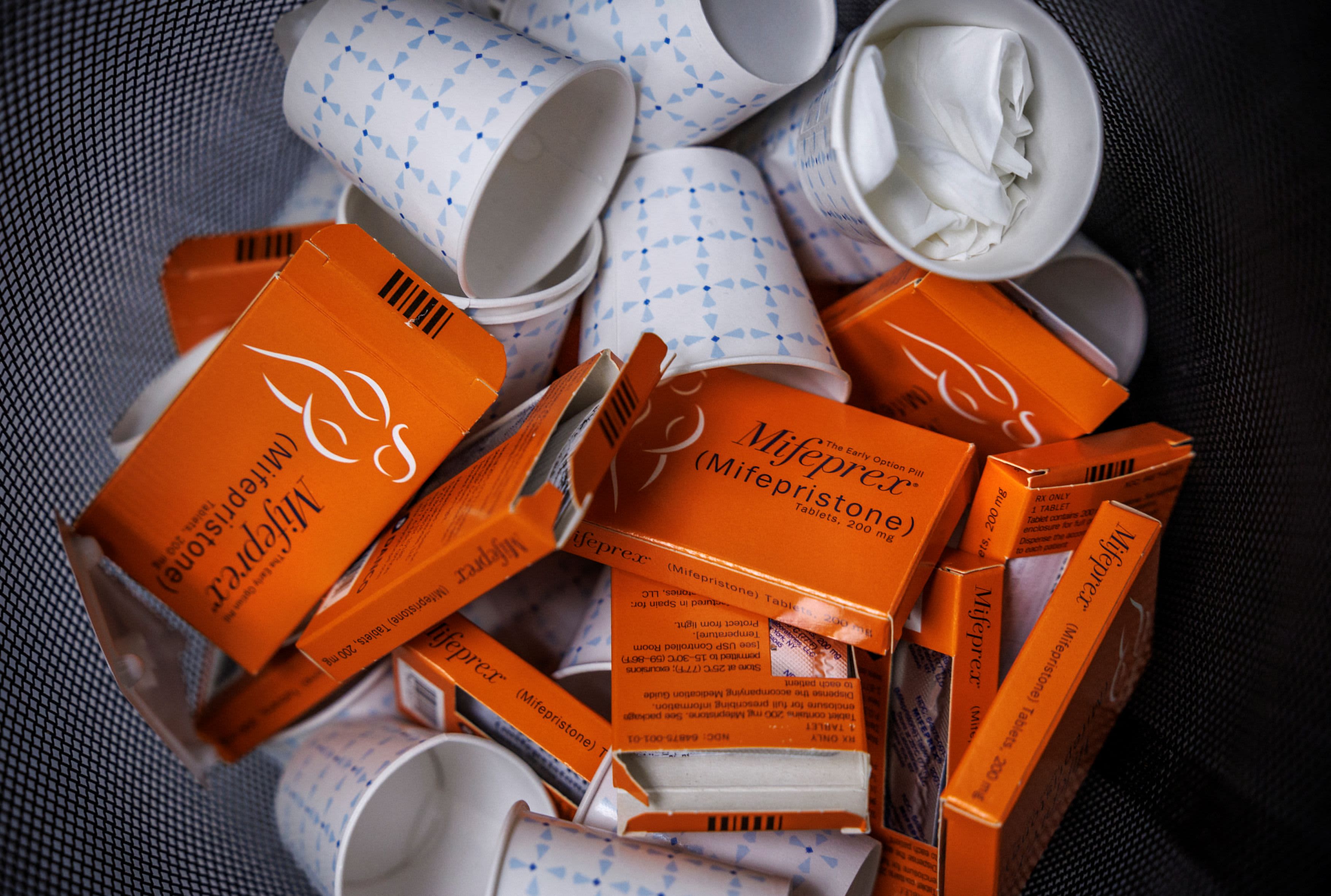A proposal that would prevent abortions after six weeks of pregnancy is set to be discussed by the Florida Senate on Thursday amid a debate refueled by the U.S. Supreme Court’s decision last year to overturn Roe v. Wade.
As Senate Bill 300 moves one step closer to being signed, here's what Floridians should know about how the proposed legislation would affect reproductive healthcare in the state.
Watch NBC6 free wherever you are
>How would the new bill change Florida's current abortion laws?
The new bill, which is called the Pregnancy and Parenting Support bill, would ban abortions after six weeks, shortening the current ban on abortions after 15 weeks in Florida.
Get local news you need to know to start your day with NBC 6's News Headlines newsletter.
>The 15-week abortion ban was signed into law by Republican Gov. Ron DeSantis last year and is still being challenged. As recently as February, a Miami-Dade County judge denied a motion for a temporary injunction on the ban.
The Pregnancy and Parenting Support bill would only go into effect if the current law is upheld, and it would make it a crime to provide an abortion past six weeks with certain exceptions.
There would be an exception to save the life of the pregnant person and exceptions in the case of pregnancy caused by rape or incest until 15 weeks of pregnancy.
In those cases, pregnant people would have to provide documentation such as a medical record, restraining order or a police report to prove they are victims.
Even with its exceptions, the bill would become the strictest abortion ban the state has had in recent memory.
REPRODUCTIVE RIGHTS
How has the community reacted to the bill?
The proposed legislation has garnered passionate opinions on both sides.
Opponents of the bill have said that by the time a woman finds out she's pregnant, it will become too late to get an abortion or there will be too little time to arrange one — especially for victims of rape and incest.
“This bill is too restrictive," said Democratic Rep. Robin Bartleman. "The amount of paperwork that a woman has to go through to show that they are raped is retraumatizing."
Bartleman added that most rapes aren't even reported. But she also recognized that Republicans will likely get their way.
"You are going to have the votes, you have a supermajority. There will essentially be an outright abortion ban in the state of Florida,” she said. “I can do math.”
They have also argued that the bill will have an even greater impact on women in rural areas with limited health care, because trying to obtain an abortion would be more difficult for them.
“This is an attack on people’s lives, on our freedoms, and our ability to make personal medical decisions that only we should make," said Amy Weintraub from Progress Florida.
Alternatively, proponents of the bill focus on the unborn children whose lives will be "saved" if the legislation is passed.
“It’s a bill that recognizes the importance and value of the life of innocent, unborn human beings,” said Republican Rep. Jenna Persons-Mulicka said of her proposal. “The bill that’s before you is not solely a reflection of my personal beliefs, but a result of listening in an attempt to build consensus around a policy that supports life."
Governor Ron DeSantis has indicated he will back the proposed ban. Because he is widely expected to run for president, signing the bill could give him a boost with conservative voters.
Abortion the numbers in Florida
According to state data, there have been 7,303 abortions performed in Florida this year, with south Florida seeing more than the average.
One-third of the state's abortions — approximately 2,400 of them — were performed in Miami-Dade and Broward counties.
The most common reason for the state's abortions was listed as “elective” in state documents, followed by “due to social or economic reasons.”
So far this year, 26 abortions were performed following an instance of rape.
While the six-week ban appears to be on a glide path to the governor’s desk, the most recent poll on the issue tells us Florida voters don’t want strict restrictions.
According to a poll of 1,400 people from the University of North Florida this month, 75% of Floridians “strongly” or “somewhat” oppose banning abortions after six weeks with no exceptions for sex crimes.
Where does the bill stand now?
The proposed six-week ban is set to be discussed by the Florida Senate on Mar. 30.
The House version of the bill was approved along a party-line vote during the Health and Human Services (HHS) Committee meeting on Mar. 30.
Earlier this month, the bill received overwhelming approval from a Florida House committee on Mar. 16, as even Democrats acknowledged there's nothing they can do to stop it from eventually becoming law.



